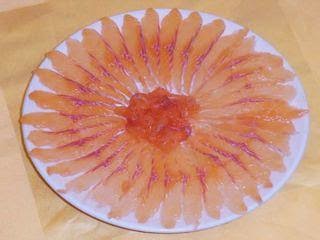 |
| Click here for more information on diet |
What’s the function of protein in our body, and why Stage 3 CKD patients need to limit the protein intake?
General population needs 40 to 65 grams of protein each day. These protein is used for repairing tissue, making hormones, forming antibodies and enzymes, helping balance acid-base, fluid and electrolytes, and providing some of the body’s energy, so protein is necessary for our health.
What’s more, there are 20 amino acids, while nine of which is essential to our body. The nine amino acids can only be obtained through diet. Food containing all the nine amino acids is called "complete" protein, also referred to as high biological value proteins. These kinds of food are good for Stage 3 CKD patients.
But superfluous proteins will produce metabolic waste, which is filtered out by kidney. So too much protein intake will aggravate the burden of kidney. Stage 3 CKD patients must get right amount and right kind of proteins.
Is fish a kind of kidney-friendly food?
Fish is a good nutrition, so can Chronic Kidney Disease patients eat some fish?Fish is rich in protein and it is said Chronic Kidney Disease patients need to limit protein intake. Therefore, does it mean it is not good for Chronic Kidney Disease patients to eat fish?
Fish contains high-quality protein with all the essential amino acids, which can be maximally used. Thus, minimum metabolic waste will produce so as to lessen the work of kidney. Some fish contains anti-inflammatory fats called omega-3 fatty acid fighting diseases such as heart disease and cancer. Fish highest in omega-3 fatty acid include albacore tuna, herring, mackerel, rainbow trout and salmon. Our experts advise to eat fish two or three times a week.
if fish is good for chronic kidney disease patients, it depends on patient’s specific condition,so Fish consumption was defined as average weekly intake of fried fish, oily fish, white fish, and fish fingers. The study accounted for lifestyle factors, like alcohol and tobacco use, family medical history, socio-economic status, and ethnicity, but the researchers found they didn't have a significant impact on risk of macroalbuminuria.
Email:sjzhospitalrenal@hotmail.com
没有评论:
发表评论